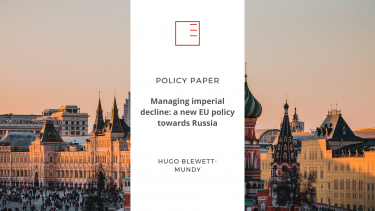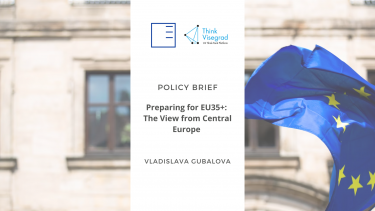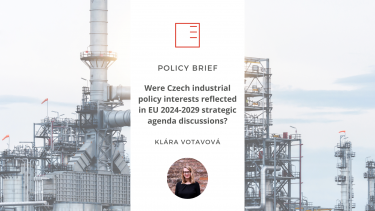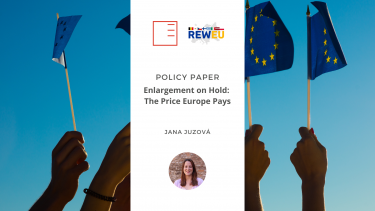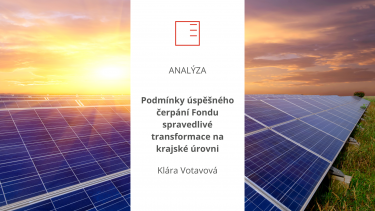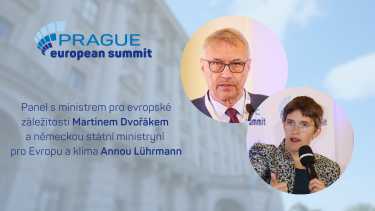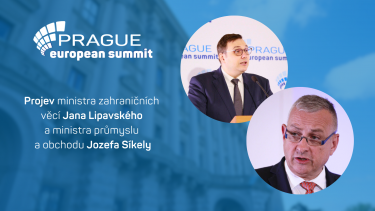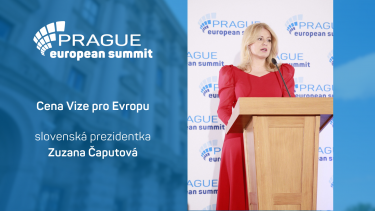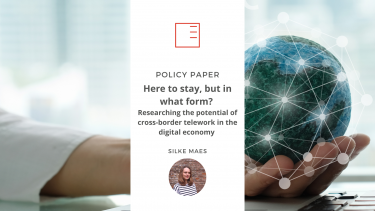Policy paper | Czechia and NATO: Building a more capable, connected and credible European pillar
CEE allies are key to building the capabilities-based, European Pillar NATO needs to enact genuine burden shifting and secure the alliance’s future. Dr Benjamin Tallis shows how Czechia can build on recent progress in defense procurement and increase its influence by prioritising the six elements Euro-NATO needs: core national war-fighting capabilities, logistics, military mobility, strategic enablers, air defence and long-range strategic strike.
Show morePolicy paper | Managing imperial decline: a new EU policy towards Russia
Russia's full-scale invasion of Ukraine in February 2022 has shattered the post-Cold War international order built upon East-West interdependence and cooperation. The European Union (EU) - which had tried to pursue a strategic relationship with Russia after the collapse of the Soviet Union in 1991 - must now adapt to the geopolitical reality of Russian neo-revisionism. Hugo Blewett-Mundy, an Associate Research Fellow at EUROPEUM Institute, identifies four areas where the EU's policy towards Russia could evolve to confront this emerging security situation in Europe.
Show morePolicy Brief | Preparing for EU35+: The View from Central Europe
Despite the historical support of EU enlargement policy by the Visegrad Four (V4), these Central European states are now faced with the challenge of reconciling their stances with the new realities of the process. As Ukraine and Moldova opened their accession negotiations, the EU seems to be torn on the questions associated with the future enlargement(s) - institutional reforms and changes within the EU budget. Transitioning from economic beneficiaries to potential contributors, the V4 states must evaluate the potential political and economic impacts of new members on both the EU and their domestic levels. Writes and proposes recommendations Vladislava Gubalova from GLOBSEC.
Show morePolicy Brief | Were Czech industrial policy interests reflected in EU 2024-2029 strategic agenda discussions?
In light of the recent return of industrial policy to the global and EU stage, this policy brief outlines how Czech interests in this policy were reflected in the debates leading up to the adoption of 2024-2029 EU strategic agenda. First, it strives to define Czech industrial policy interests, outlining two alternative approaches to how they can be perceived. The liberal approach follows the long established consensus, according to which Czechia – as a very open, export oriented economy – should promote above all a seamless Single Market and free trade. Writes EUROPEUM Institute researcher Klára Votavová in her Policy Brief.
Show morePolicy Paper | Enlargement on Hold: The Price Europe Pays
How can the EU enlargement process regain its lost momentum? And how can we learn from previous rounds of enlargement? These questions are answered by a group of authors together with EUROPEUM Institute senior researcher Jana Juzová in a new publication within the REWEU project.
Show moreAnalysis | Conditions for Regional Preparedness to Draw on the Just Transition Fund
Through interviews with officials and other relevant actors at national and regional level, this research report identifies conditions for regional preparedness to draw on the Just Transition Fund. Researcher at EUROPEUM Institute Klára Votavová compares the situation in two of the three Czech regions that are drawing on the Fund: Moravian-Silesian and Karlovy Vary Region.
Show morePES 2024 | The EU must cooperate not only militarily, but also to defend itself against cyber attacks from Russia, said Minister Dvořák at the conference
The second day of the Prague European Summit 2024 conference at the Czernin Palace was opened with a speech by Czech Minister for European Affairs Martin Dvořák. He thinks of the enlargement of the European Union as crucial. "We have to realize that the enlargement of the EU, our defense and security and the current Central European position are interconnected," he said.
Show morePrague European Summit | "Nuclear energy must be part of the Green Deal." Ministers Lipavský and Síkela presented their priorities for the next European Commis
Minister of Foreign Affairs Jan Lipavský and Minister of Industry and Trade Jozef Síkela delivered speeches at the 10th anniversary of the Prague European Summit. Both responded to the ever-changing challenges facing Europe and Russia's expanding aggression, while Minister Síkela stressed the need of economical transformation.
Show morePrague European Summit | Slovak President Čaputová warned against the rise of extremism and hatred on social media
Slovak President Zuzana Čaputová was the guest of honour at the 10th anniversary Prague European Summit. At the Czernin Palace, she received the traditional Vision for Europe Award from the Czech Minister of Foreign Affairs Jan Lipavský.
Show morePolicy paper | Here to stay, but in what form? Researching the potential of cross-border telework in the digital economy
The rapid uptake of telework, facilitated by digitalisation, has upset a system based on physical presence in the workplace in the EU. Especially since the pandemic, telework has become increasingly prevalent and an integral part of employees’ working and expectation patterns. Our research fellow Silke Maes covered this topic in her policy paper, highlighting the challenges and opportunities telework presents for cross-border coordination.
Show moreStaroměstské náměstí 4/1
Prague 1 - Staré Město
110 00
tel.: +420 212 246 552
email: europeum@europeum.org
https://www.europeum.org

